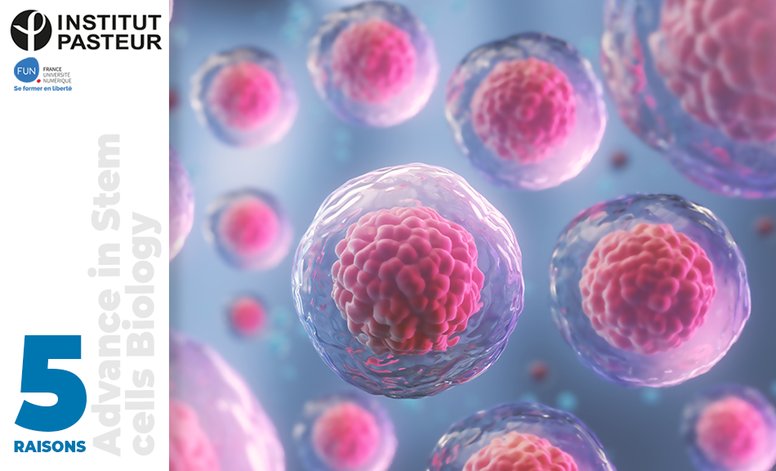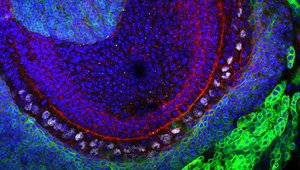News
5 reasons to follow the MOOC "Advances in Stem cells Biology"
Categories
About the course03/29/2024

Stem cells can divide and give rise to cells that will differentiate into specialized cells, while maintaining a pool of undifferentiated stem cells. They have the spectacular ability to restore the function of damaged tissue. Since 2006, researchers have been able to generate "induced" pluripotent stem cells from any adult cell, which involves reprogramming a differentiated cell into a stem cell by reactivating the expression of genes associated with the embryonic stage (pluripotent stage). This biomedical engineering process offers major opportunities for fundamental studies on organogenesis (the transformation of the embryo from the egg stage to maturity), regeneration, disease and ageing, and this without embryonic stem cells.
Here are 5 important reasons for taking this course:
Reason no. 1: To know the general concepts of stem cell biology.
Reason no. 2: To learn how tissue-specific stem cells participate in the transformation of the embryo from egg to maturity (organogenesis).
Reason no. 3: To understand how pluripotent stem cells are obtained in vitro from differentiated cells.
Reason no. 4: Understand how organoids, a type of mini-organ cultivated in vitro using stem cells, can help us to understand the biology of development.
Reason no. 5: To discover the therapeutic applications of stem cells.
This course is designed for people with at least a bachelor's degree in cell biology.
To register and find out more, click here.
End of registration : December 10, 2024
This training is part of the Digital Diploma in Infectious Diseases of the Institut Pasteur (DNM2IP).
Related posts
Alimentation durable : comment semer les graines du changement ?
Categories
About the coursePlongée dans l'univers des tiers-lieux : découvrir, partager, collaborer
Categories
About the courseComment enclencher une révolution verte ?
Categories
About the course




